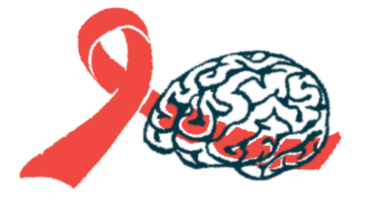Approved Treatments for Alzheimer's Disease
Aricept
Aricept (donepezil) is an oral medication approved for patients in all stages of Alzheimer’s to treat dementia symptoms. It is a reversible inhibitor of an enzyme — a catalyst that can trigger a chemical reaction — called acetylcholinesterase. Aricept is thought to increase acetylcholine levels in the brain by preventing its breakdown. This can increase the communication between remaining healthy nerve cells in the brain and provide a temporary reprieve from dementia by improving cognition and function.
Exelon
Exelon (rivastigmine) is a type of cholinesterase inhibitor that manages the symptoms of Alzheimer’s disease by reversibly blocking the function of acetylcholinesterase. By inhibiting this enzyme, it prevents the breakdown of the neurotransmitter acetylcholine and increases its levels in the brain. This can provide a temporary relief for some of the symptoms of Alzheimer’s by improving the communication between nerve cells in the brain.
Kisunla
Kisunla (donanemab-azbt) is an antibody-based therapy approved to treat adults with early symptomatic Alzheimer’s disease. This includes people with mild cognitive impairment or mild dementia. Kisunla is designed to slow the progression of Alzheimer’s by stimulating a person’s immune system to attack and destroy proteins in the brain that are believed to cause the neurodegeneration seen in the disease.
Leqembi
Leqembi is an antibody that is designed to bind to and neutralize a soluble, toxic version of beta-amyloid. The treatment works by “tagging” the beta-amyloid protein, marking it for clearance by the body’s immune system before it reaches toxic levels. In doing so, the treatment is thought to be able to slow Alzheimer’s progression, including symptoms of cognitive impairment and functional disability.
Namenda
Namenda (memantine) is an approved medicine for the treatment of moderate to severe Alzheimer’s disease. When nerve cells are damaged, it is believed that some start to release excess glutamate, leading to too much calcium entering cells. Namenda works to block glutamate, which is involved in learning and memory, from accessing NMDA receptors, preventing excessive calcium from entering cells and causing damage.
Namzaric
Namzaric (donepezil and memantine) is an approved therapy for moderate to severe Alzheimer’s disease. Namzaric is a combination of Aricept and Namenda. Donepezil offers a temporary reprieve from Alzheimer’s symptoms by improving the communication between nerve cells in the brain that are still healthy, while memantine regulates glutamate, which damaged nerve cells produce in abnormally high amounts.
Nuedexta
Nuedexta is a combination of dextromethorphan and quinidine approved to treat uncontrollable episodes of laughing or crying, a condition known as the pseudobulbar affect (PBA). Scientists believe dextromethorphan blocks certain neuronal pathways that regulate rapid, exaggerated mood swings and related behaviors, which alleviates PBA symptoms and agitation. Quinidine helps increase the amount of dextromethorphan available in the blood, enhancing the combo therapy’s benefits.
Razadyne
Razadyne (galantamine) is designed to slow the progression of symptoms in mild to moderate Alzheimer’s disease. The therapy acts to reversibly block acetylcholinesterase, which allows for an increase in levels of acetylcholine, an essential neurotransmitter involved in learning, thinking, and memory processes. This improves communication between nerve cells and can alleviate some symptoms of the disease.
Rexulti
Rexulti (brexpiprazole) is a once-daily oral therapy that is approved to help manage agitation — abnormal or inappropriate displays of emotion, such as shouting or shoving — associated with dementia due to Alzheimer’s disease. The medication is the first and only treatment ever approved for this specific indication in the U.S.
Zunveyl
Zunveyl is an approved oral therapy used to slow the progression of dementia in people with mild to moderate Alzheimer’s disease. The therapy is designed to increase the levels of acetylcholine, an essential neurotransmitter involved in learning, thinking, and memory processes. Zunveyl delivers its active substance, galantamine, only after it passes through the digestive system, thereby potentially improving its tolerability profile.






